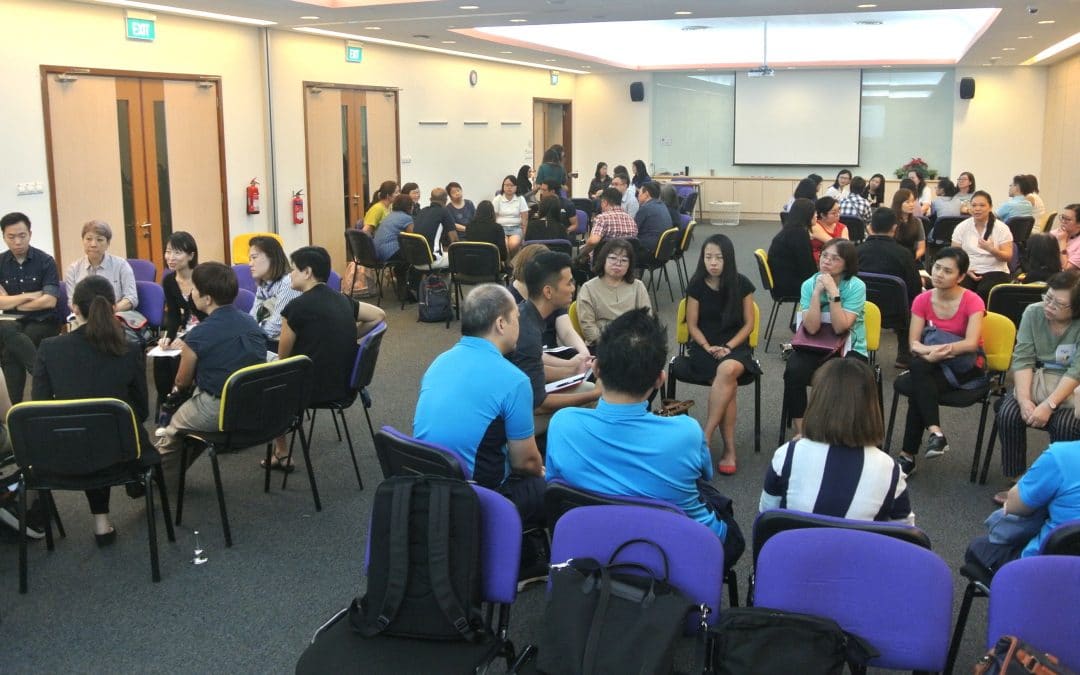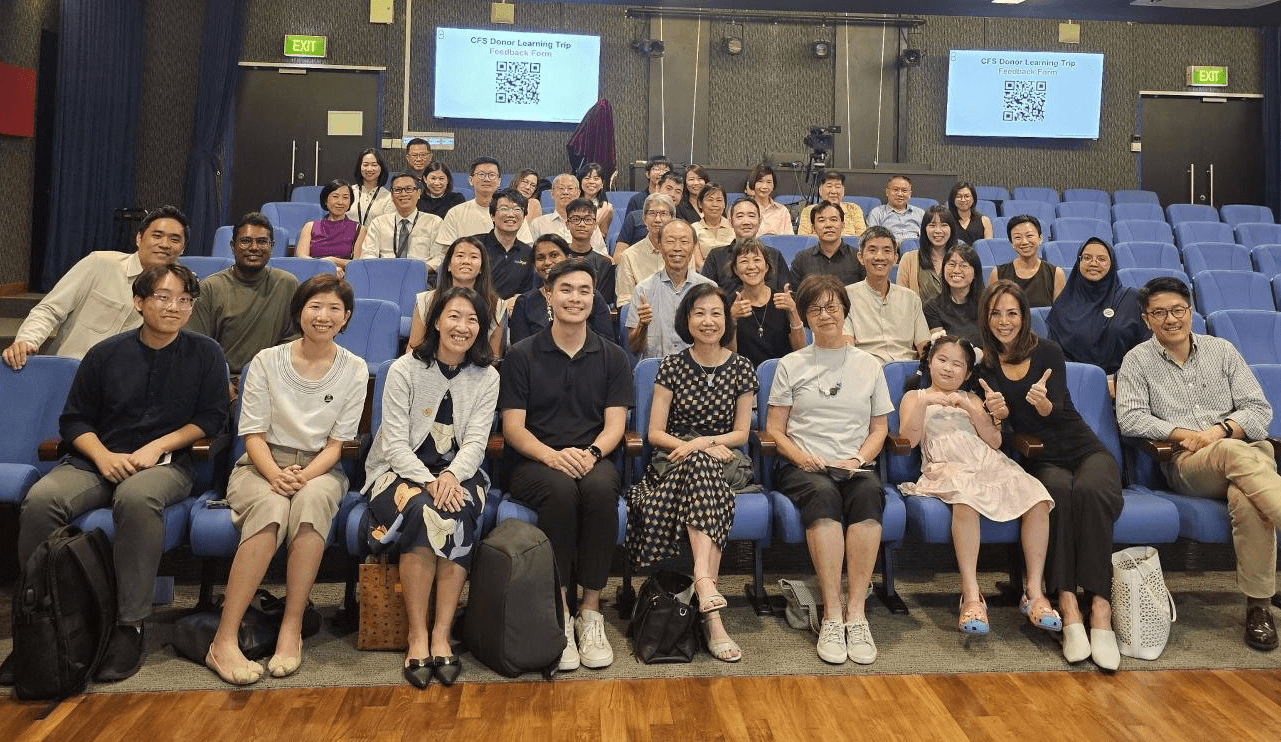A review to keep improving outings for the elderly


It has been 10 years since the Outing for Seniors Community Impact Fund was started to enable nursing homes, day care centres, hospitals and hospices to bring seniors with medical conditions or mobility challenges on regular, organised excursions around Singapore.
To date, some 10,000 seniors have been on over 700 outings organised by more than 60 charitable organisations, with Changi Airport and Gardens by the Bay topping the list as favourite destinations.
In January, some 70 representatives from 28 charitable organisations who received grants from the fund gathered for a review session organised by CFS. At the event, attendees were updated on the fund’s streamlined application guidelines and processes. Breakout sessions were also conducted to gather feedback, exchange views and gain a better understanding of the profiles of seniors, types of outings and activities, volunteer to senior ratios and fund utilisation.
Representatives from the Esplanade and National Heritage Board were present to share their specially curated, senior-friendly arts, culture and heritage programmes. These include nostalgic concerts and performances, heritage trails, guided museum gallery tours, events and festivals which are all designed to promote active ageing.
All in, it was a productive afternoon for everyone. It is hoped that the fund and the outings it supports will continue to grow from strength to strength, as we can all agree that the joy that it brings to seniors makes its purpose all worthwhile.
It has been 10 years since the Outing for Seniors Community Impact Fund was started to enable nursing homes, day care centres, hospitals and hospices to bring seniors with medical conditions or mobility challenges on regular, organised excursions around Singapore.
To date, some 10,000 seniors have been on over 700 outings organised by more than 60 charitable organisations, with Changi Airport and Gardens by the Bay topping the list as favourite destinations.
In January, some 70 representatives from 28 charitable organisations who received grants from the fund gathered for a review session organised by CFS. At the event, attendees were updated on the fund’s streamlined application guidelines and processes. Breakout sessions were also conducted to gather feedback, exchange views and gain a better understanding of the profiles of seniors, types of outings and activities, volunteer to senior ratios and fund utilisation.
Representatives from the Esplanade and National Heritage Board were present to share their specially curated, senior-friendly arts, culture and heritage programmes. These include nostalgic concerts and performances, heritage trails, guided museum gallery tours, events and festivals which are all designed to promote active ageing.
All in, it was a productive afternoon for everyone. It is hoped that the fund and the outings it supports will continue to grow from strength to strength, as we can all agree that the joy that it brings to seniors makes its purpose all worthwhile.
- Related Topics For You: ARTS & HERITAGE, CHARITY STORIES, COMMUNITY IMPACT FUND, DONOR STORIES, EVENTS, HEALTH, INCLUSIVITY & INTEGRATION, OUTING FOR SENIORS, PERSONS WITH DISABILITIES, PROMOTING HEALTHCARE, SENIORS, STORIES OF IMPACT



